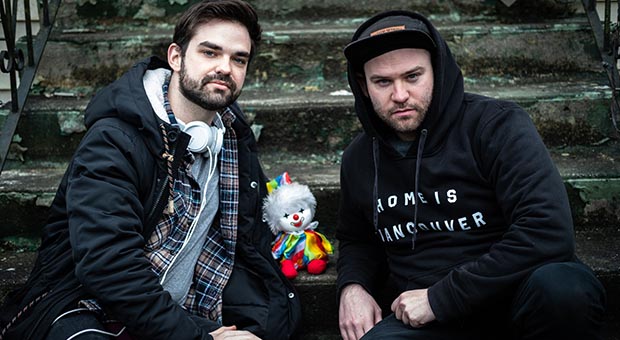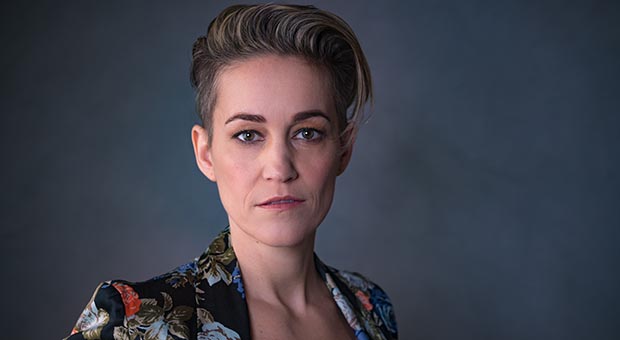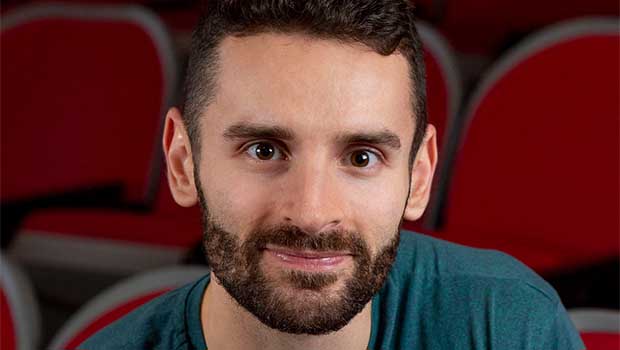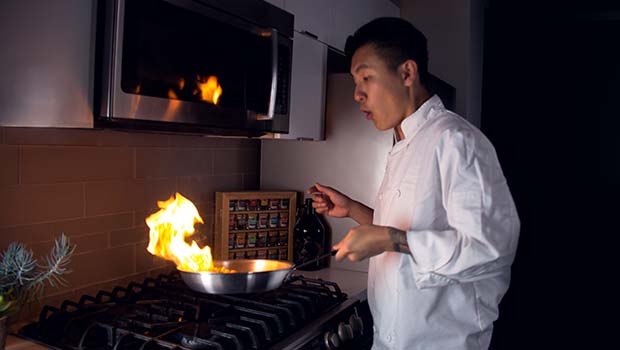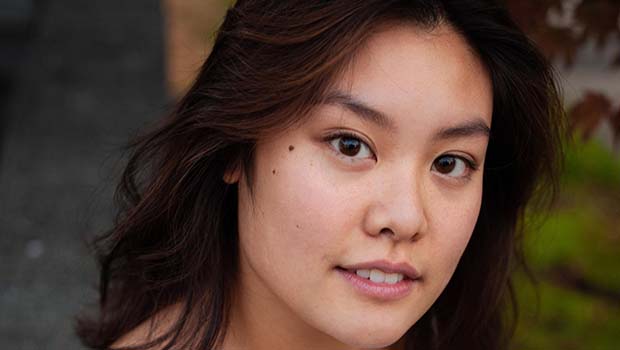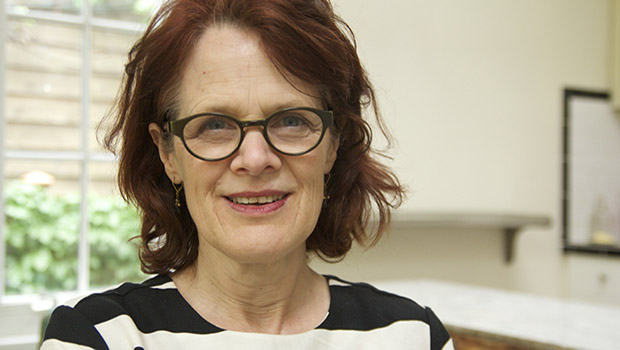
01 Nov The Biz Interview: Martha Ross
You have an idea for a play or theatre piece and it seems to just sit there. You can’t go forward with it nor can you say goodbye to it. Nothing moves….
Martha Ross is the creative architect behind a riotously fun and supportive workshop called “What’s the Big Idea?”, which will bring your blocked idea into a place of playful freedom. You will discover a creativity that you had no idea you possessed. And you will discover what to do next. You will remember why you had the idea in the first place.
“What’s the Big Idea?” is happening at Playwrights Theatre Centre in Vancouver on November 7th and November 8th and on November 14th and November 15th in Victoria at the Victoria College of Art. We spoke to Martha Ross in advance of the workshop to find out more about her and what the big idea is behind “What’s the Big Idea?”.
________________________________
Can you start by telling us a little bit about you?
I grew up in Burnaby and like a lot of people in the early ’70s, if you lived in Burnaby you went to SFU and if you lived in Vancouver, you went to UBC. SFU was tremendously exciting at that time. I did a lot of modern dance and then in my last year, I did drama. But although I loved this new experience of theatre, I was a really bad ‘method’ actor. I assumed this meant that I should get out of theatre entirely.
After I went to Toronto to visit a friend, I quite by chance ended up taking a Clown Workshop offered by a Jacques Lecoq grad, Dean Gilmour. He convinced me that I suited the Lecoq school so I saved up my money working in a fish plant and went off to the Lecoq school in Paris for two years. It changed my life. After leaving Paris, I began Theatre Columbus in Toronto with another Lecoq grad, Leah Cherniak. Over a 30 year period, we created countless pieces of theatre that were primarily all ‘serious comedies’.
Our company is now run by Jennifer Brewin, who has renamed the company Common Boots Theatre. I now teach in universities and in private studios across Canada. Teaching has become a passion for me, but I still miss BC like crazy. Every time I fly into Vancouver over the Fraser River, I cry.
What can you tell us about “What’s the Big Idea?” and what participants can expect?
I was proposing a project for a Canadian Stage Festival that was called “Ideas and Creation” and so I did research on the word root for “Inspire”. I knew that it had to do with breath and spirit, but further research showed me that the word ‘spire’ goes back to Old Norse and Sanskrit and is connected to the words ‘whistle’ and ‘passing wind’. This got my mind racing and before I knew it, my Big Ideas Workshop was born.
Why I keep offering it is that number one, it is so much fun, and number two, time and time again I hear people say to me “I have this idea for this new theatre piece but I just can’t seem to get writing”.
Or “I am writing a new play but I seem to be stuck on page 30.”
A lot of people get stuck on page 30. Why is that? I can only imagine it’s because we get stubborn with our ideas or worse, precious with them! Or we try to copy “good play writing” techniques; we try to emulate other writers. Which is fine for a while, but ultimately you have to bring your self to the page and the stage.
So this workshop is designed to shake you up, stretch your imagination muscle and bring you back to you. Even if Pinter had wanted to, he couldn’t have written like Ibsen. He maybe found Ibsen inspiring but in the end, Pinter could only write like Pinter. The workshop does other things as well – like I help you find out more about the characters, the conflict, the style, the perfect design elements, etc. I can’t say too much or it ruins the surprise of the workshop. In a nutshell I get you on your feet and you play with your idea and then you’re inspired to get back to writing.
What’s the biggest misconception about writing for theatre?
The biggest misconception about writing for theatre is that there is one good method. It took us forever to realize that plays don’t need monologues for example. Sure, maybe we need beginnings, middles and ends, but one writer’s arc is going to be very different than another writers.
In your opinion, what is the current state of the Canadian theatre community and how can it be improved?
The alternative scene across Canada is alive and well and contributing enormously to all levels of theatre. How can it be improved? I’m not sure. I’m very positive that it is improving. We challenge the discipline more than we did 30-40 years ago. Having said that though, we have to keep making our theatre vibrant. That can mean any number of things. We have to let it keep changing. And we have to keep looking for virtuosity. Virtuosity can be achieved in performing, staging, writing but also just in the ability to astound. If you are a clown, be a brilliant clown. If you do minimalist theatre, then do it like no one else has done before.
What have been a few of your career highlights?
A career highlight was when Theatre Columbus managed The Poor Alex Theatre in Toronto with Theatre Smith-Gilmour and Crow’s Theatre. The theatre was a 100-seat venue complete with rats and pipes that banged and audiences that hooted and cheered. It was a special time in Toronto. And some of our best plays came from that time: The Anger in Ernest and Ernestine; Paranoia; Dr. Dapertutto; Cooking with Columbus, etc.
What’s the best advice you’ve ever received about writing for theatre?
Best advice for writing for theatre: I wish I could find the exact quote. Harold Pinter said something like ‘get your characters started and then get out of the way’. But the idea is that if you allow your characters to really talk, and then talk some more, you are going to be surprised. Allow yourself to be surprised.
And of course Jacques Lecoq. Everything that Jacques Lecoq taught was brilliant and I can’t sum it up here. But basically he talked a lot about force, dynamic, rhythm and space. I always tell my students to allow your characters to suddenly move across the whole expanse of the stage and to leave, for example.
What plays and playwrights have been influential to you in your career so far?
Henrik Ibsen, Samuel Beckett and Harold Pinter. But my writing has absolutely no resemblance to them. But I do love how Samuel Beckett and Harold Pinter ride the fine line between comedy and drama. I thrive on the connection between those two territories. And I love how Henrik Ibsen makes us gasp.
Where can we find out more about you?
Common Boots Theatre has a new website.
________________________________
Our thanks to Martha Ross for speaking with us! To register in “What’s the Big Idea?” or to get more information, please e-mail Martha Ross at marthaross.ross@gmail.com. Costs for her workshops are $200 in Vancouver and $190 in Victoria.
________________________________


